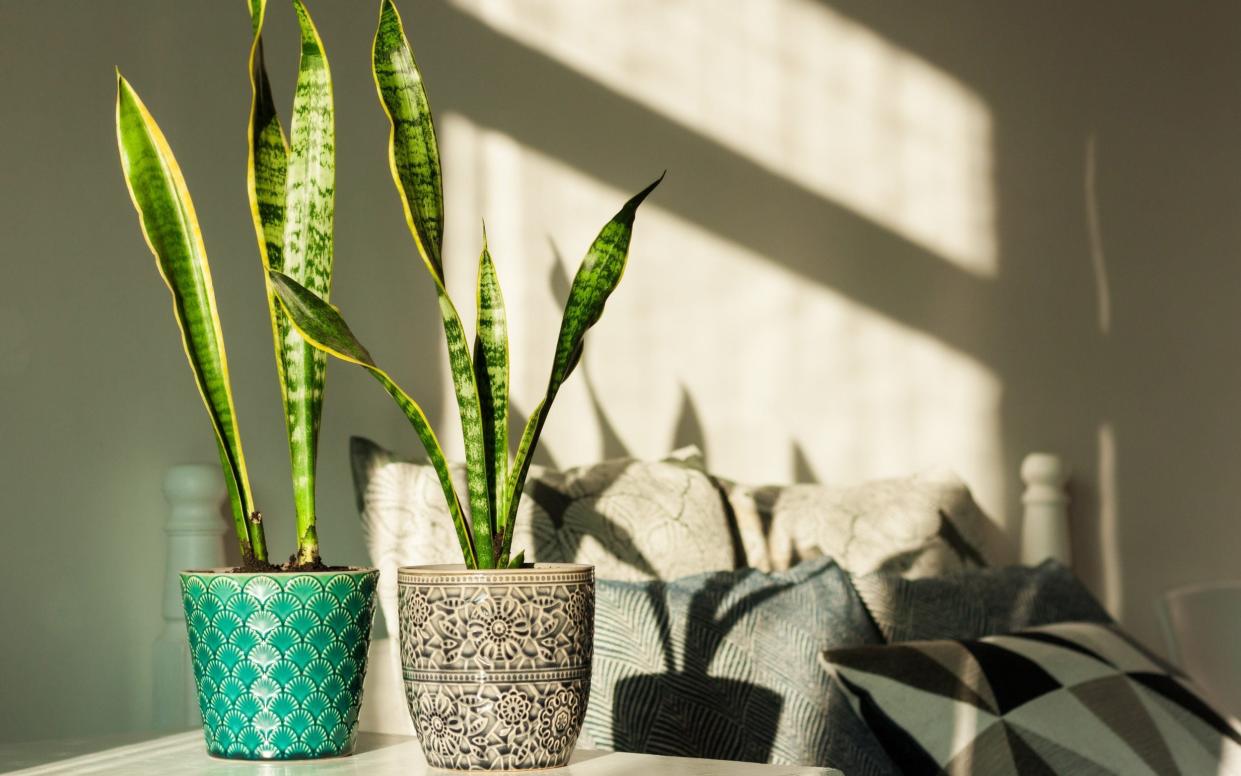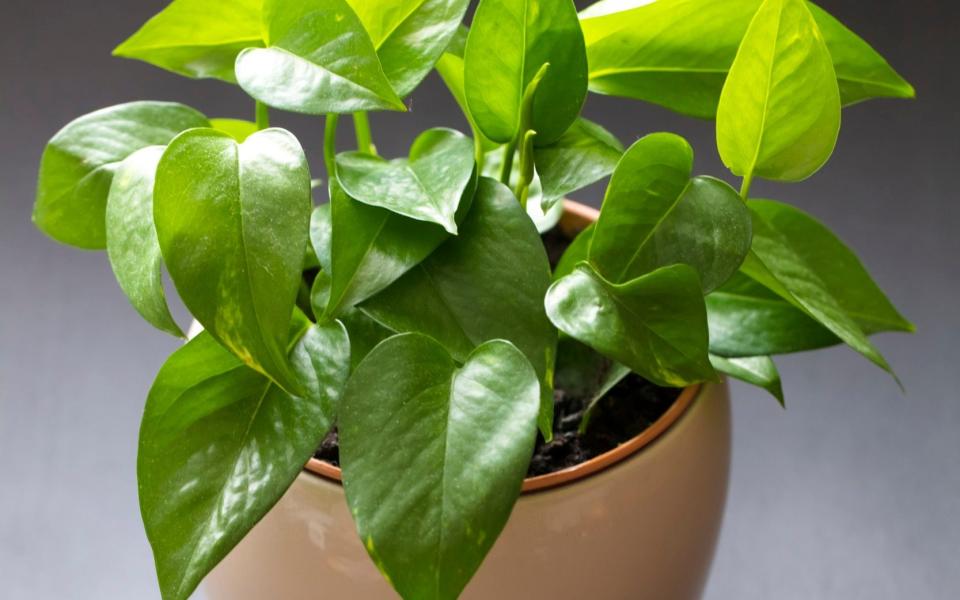Letting your plants shrivel makes you sadder than having none at all

We’ve all experienced a sinking feeling when an ailing houseplant just won’t respond to our efforts to save it.
And now a study has found that while lush, healthy plants make us happier and more relaxed, dead or dying ones can be worse than none at all.
Sickly plants should be removed from homes and offices to avoid depressing occupants, joint research by the RHS and University of Reading has found.
The study, published in the journal Building and Environment, examined the plant types most likely to boost people’s wellbeing, concluding that people reacted best to “lush, green plants with a rounded, dense canopy”.
Participants were asked to assess the beauty and interest of a series of different common house plants, including a cactus, weeping fig, bird’s-nest fern and snake plant, as well as how much they thought they would improve indoor air quality.
A neglected palm used in the study “was the least attractive, least preferred plant and participants thought the appearance was unhealthy and depressing.
“This important finding shows that to benefit occupants’ well-being, sick or dead plants should be removed from the indoor environment,” the authors concluded.
The neglected palm was scored as 1.5 times more depressing, on average, than the healthy plants used in the study.
The healthy palm, by contrast, was popular because participants associated it with “holidays and happy memories”.
Previous studies have found that individual plants have minimal practical impact in removing a build-up of carbon dioxide and volatile organic compounds (VOCs) emitted by paint and new furniture, although many plants in a home will start to help.
But the study found that people thought healthier plants would improve air quality more, and more interesting and beautiful plants improved their wellbeing, while unhealthy plants might spike their stress levels and make them feel that air quality was poor.

Devil’s ivy, weeping fig tree and palms were the most popular varieties, while a cactus was divisive and spikier snake plants and striped Calathea were perceived as less beautiful.
“The neglected palm was significantly more stressful than all other plants.
“Sansevieria (snake plant) and Calathea both had markings on their leaves which some participants found stressful as they associated them with snakes and dangerous insects or animals,” the study found.
Previous studies have found that plant-filled offices can make people work more effectively and be more productive, and the study suggested managers and designers should choose carefully when picking their varieties, the authors said.
“To maximise the well-being benefit for building occupants, designers and installers should choose healthy indoor plants which people find beautiful and interesting,” the study concluded.
Dr Tijana Blanusa, principal horticultural scientist at the RHS and one of the researchers involved in the study, said: “If you want to attract people back into a shopping mall, for example, go for rounded contours, lush foliage, and avoid the extremes of shape and form, to get it to be universally liked by the audience.
“People don’t like the unhealthy plants, and for some of them it is worse, so we need to equip them with the knowledge of how to grow the plants, or extend the variety of the plants that are very easy to grow.”

Many participants commented on the problems of looking after plants and worrying about killing them by accident, which adds to the stress of owning them.
Dr Blanusa added: “Choosing plants that are easy to care for and maintain with the right support – such as the use of self-watering containers for thirsty plants such as peace lilies (Spathiphyllum wallisii) or choosing less water-demanding plants such as Zamioculcas – will ensure they stay healthy and continue to provide these benefits to well-being.”

 Yahoo News
Yahoo News 
